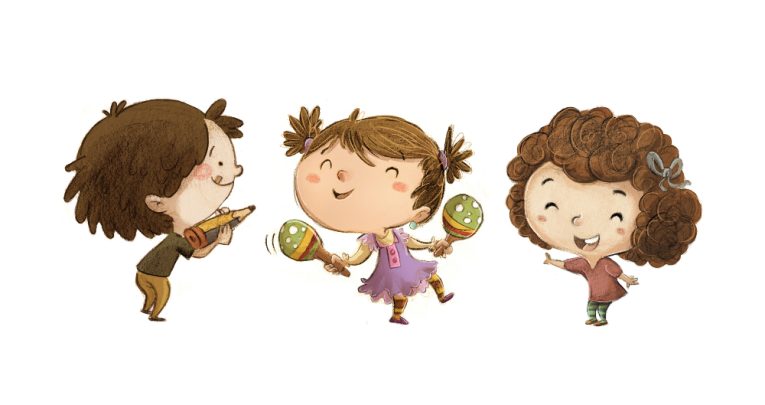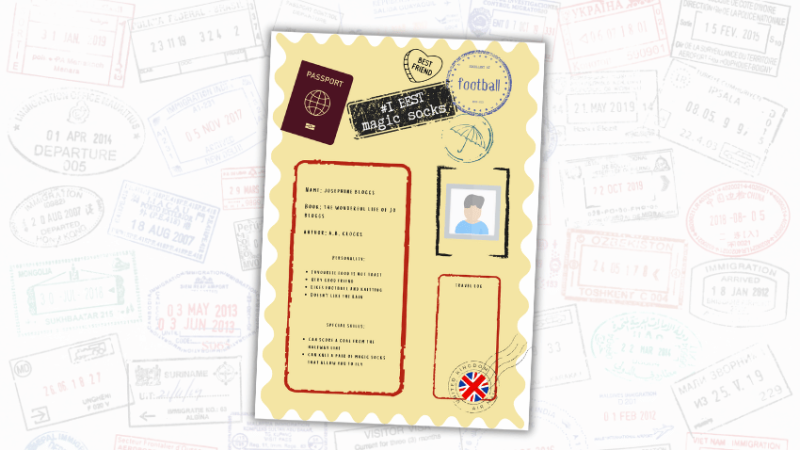Poetry and song play a key role in children’s development – and in more ways than you’d think

Immersed in verse – Make sure you have a range of poetry, poems and poetic stories in your book provision, says Anjali Patel…

- by Anjali Patel
- Lead advisory teacher at the Centre for Literacy in Primary Education

A baby growing up in a talk-rich household is likely to be immersed in rhyme and song as they grow, and will take pleasure in the rhythms, stories and sense of belonging these bring. They’ll learn that their body is a tool for communication, and develop coordination, motor skills and the ability to scan – all skills necessary for reading and writing.
Memorable rhymes and patterned language engage concentration, develop an ‘ear’ for language and increase vocabulary. Children take a natural interest in wordplay, and by having fun with the sounds and meanings in language they begin to consider the impact of language choices on their audience – essential for developing writer identity.
Nursery rhymes are often children’s first experience of a narrative structure that they can recall readily enabling them to play out and reimagine these stories in a range of creative ways.
So, how can we create settings rich in poetry, rhyme and song, and enable children to enjoy the benefits they bring? Research by the Centre for Literacy in Primary Education (CLPE) shows that a few simple approaches can have an enormous impact…
Sharing verse
Share nursery rhymes; songs for instruction, learning, routines and transition; playground or street rhymes; rhymes remembered by parents and grandparents; action, clapping, scanning or finger rhymes. By building a repertoire of poetry, rhyme and song – by making it central to the curriculum and children’s sense of community and wellbeing – you can support children’s growing sense of rhythm, and explore the musicality of language.
Have children and adults draw up a core collection of poetry, rhyme and song that everyone considers essential for children to experience throughout the Foundation Stage, then plan in regular opportunities for the children to learn them by heart. Build them into everyday routines and transition times; plan to develop early phonological awareness through engagement with rhythm, rhyme, alliteration and syllabic beat.
Try creating colour, laminated rhyme and song cards – these could be handwritten and illustrated by the adults and children. Create a corresponding collection of audio recordings so that children can revisit the rhymes, songs and poems, tuning into the print as they do so. You could develop a lending library of poetry, rhyme and song cards so they can be learned at home. Perhaps pop the cards in rhyme bags housing supportive props, audio recordings and games that relate to the theme, encouraging talk and play at home.
Make sure you have a range of poetry, poems and poetic stories in your book provision. Read these regularly and encourage children to return to them independently. Ask families to talk about poems, rhymes and songs that are significant to them, and have parents contribute to a collection of audio recordings, supporting the children’s sense of security, strengthening their personal and cultural identity and easing their transitions through the setting.
Provide opportunities for children to re-enact poems in role play and small world areas indoors and outside. This is especially effective for poems with characters or settings (eg Each, Peach, Pear, Plum, The Gruffalo or Bear Hunt) and give children the opportunity to practise and perform in a playful way.
Compile an anthology
Putting an anthology of poems, rhymes and songs together is a pleasurable activity and encourages sustained shared thinking. It might simply be a collection of family favourites or poems on specific themes linked to interests or the curriculum, or of cultural or personal significance. Children can illustrate their chosen poem and talk about why it was chosen. The poems could be recorded to create an audio collection for the children to listen to independently, perhaps whilst looking at poems and the illustrations. Children could take these recordings home to share and enjoy with family members.
Listening to poetry
One of the best ways of involving children in poetry is to make a habit of reading it aloud to them. Re-read and revisit a wide range of poems, and give them plenty of opportunity to share the poems with each other. Let them hear poems lifted from the page, tune in to their rhythm, talk about what they enjoy and what interests them, revisit and play with language, and deepen understanding through performance. Children will delight in hearing the sounds the words make and feeling them in their mouths, playing with them for their own enjoyment rather like, as Allan Ahlberg says, “playing with a ball of plasticine and rolling it into different shapes”.
Gather children’s responses to poems in a poetry journal. Make a listening corner in which children can listen to your audio recordings. Some of these could be made by the children themselves or recorded ‘live’ during class read aloud times.
Provide experiences of hearing and joining in with nursery rhymes and songs with strong beats and memorable refrains. Make up jingles relating to everyday experiences, observations and routines, and chant them together. Provide the foundations for learning around poetry by modelling having fun with language, playing with sounds, and innovating familiar rhymes for amusement and purpose.
A poem a day
Invite children to choose a favourite poem each day to read aloud and pin up as the ‘poem of the day’. Talk together about how it makes them feel and what in particular they like about it. Are there any words or sounds that they enjoy particularly? Collect what the children say on prepared speech bubbles and pin these up alongside the poem.
Looking at language
Develop children’s articulation of sounds through rhyme and song. Play with sounds by exploring alliteration and tongue twisters, demonstrating and practising how the sequence of words can be expressed by controlling the pace and muscles in the mouth. Provide children with opportunities to sing songs that broaden and develop their vocal range as well as the phonemes they encounter in the English language. Ask them to describe the sounds they make and hear with both their voices and instruments.
If you have built in regular opportunities for the children to hear poetry read aloud, they will soon pick up the patterns of sound in the language, enjoy moving their bodies to the rhythm of the poems, and express a steady beat or create sound effects through body percussion. Provide tuned and percussion instruments so that the children can explore performing alongside the poem read aloud, creating sounds, movement and gestures resonant of the repeated phonemes in the words.
Encourage the children to chime in with memorable words, phrases or a repeated refrain, and as they begin to familiarise themselves with hearing it read, let them see the poem on the page, allowing them to tune in to familiar words.
As children join in or talk about words or phrases that they like the sound of, ask them to consider how the words actually feel as they mouth them. Nonsense words might be chosen by poets for a range of reasons, one being to develop pleasure in saying them in poetry and hearing the way they sound in relation to other chosen words. Taking pleasure in the feel and sound of real and imagined words enables all children to access poetry and engenders in them a lifelong enjoyment of language and literacy.
By hearing and reading poetry, children begin to develop an appreciation of the sound patterns within words. A syllable can usually be split into two parts: the onset, which consists of the initial consonant or consonant blend, and the rime, which consists of the vowel and any final consonants. There is plenty of opportunity to attend to onset and rime in nursery rhymes, for example, Jill, hill, down, crown, which is highly enabling for children learning to read and later in learning to spell.
Put on a performance
Performing poetry gives children the chance to respond to its rhythms, patterns and wordplay, an important key to unlocking the meanings and music contained in each poem. It’s through saying poetry aloud that the quality of rhyme and verse form, and the power of language can be explored and realised. In preparing for presenting poetry to an audience, and in the performance itself, children gain deeper understanding of words’ meaning, bring their own interpretations to the poem, begin to inhabit characters and reflect more thoughtfully on its message.
Find opportunities for children to practise and perform their favourite well-known poems, to others in their setting or at a special performance to family or others in the school.
Composing poetry
Composition needn’t be limited to the imitation of another poem’s form. It can be encouraged at any moment where there is opportunity to harness a child’s observations of the world, capture their personal experiences or support expression of their thoughts and feelings.
In the Foundation Stage, these opportunities are plentiful. The natural world can provide a plethora of new vocabulary and descriptive language. For example, by capturing each child’s word or phrase describing the worms they discover, on a strip of paper, then combining a number of strips, you have created a collaborative free verse poem: “Yucky, Slimy, Slithery, Digging down. Helpful, Gardeners, Strong, Compost-makers.”
Improve your practice
Resources and training from CLPE…
Poetryline
Home of CLPE’s free poetry resources to support teachers, including award-winning poets performing their poems and a wealth of teaching resources – clpe.org.uk/poetryline.
Poetry in Primary Schools: What we know works
A free booklet outlining the key areas to support the development of a poetry-friendly school – clpe.org.uk/library-and-resources.
CLiPPA Shadowing Schemehttps://www.clpe.org.uk/
CLPE’s annual award for poetry written for children. Find out how your school or setting can get involved at clpe.org.uk/poetryline/clippa.
Recommended reads
Build your repertoire
- The Oxford Treasury of Nursery Rhymes (OUP)
- Here’s a Little Poem (Walker Books)
Learning to listen
- The Gruffalo (Macmillan Children’s Books)
- Hairy Mclary from Donaldson’s Dairy (Puffin Books)
Explore language
- All Join In (Red Fox)
- A Great Big Cuddle (Walker Books)
Anjali Patel is an early years and primary advisory teacher at the CLPE, an independent UK charity dedicated to helping schools develop literacy learning that transforms lives. For further information or to book training, visit clpe.org.uk










